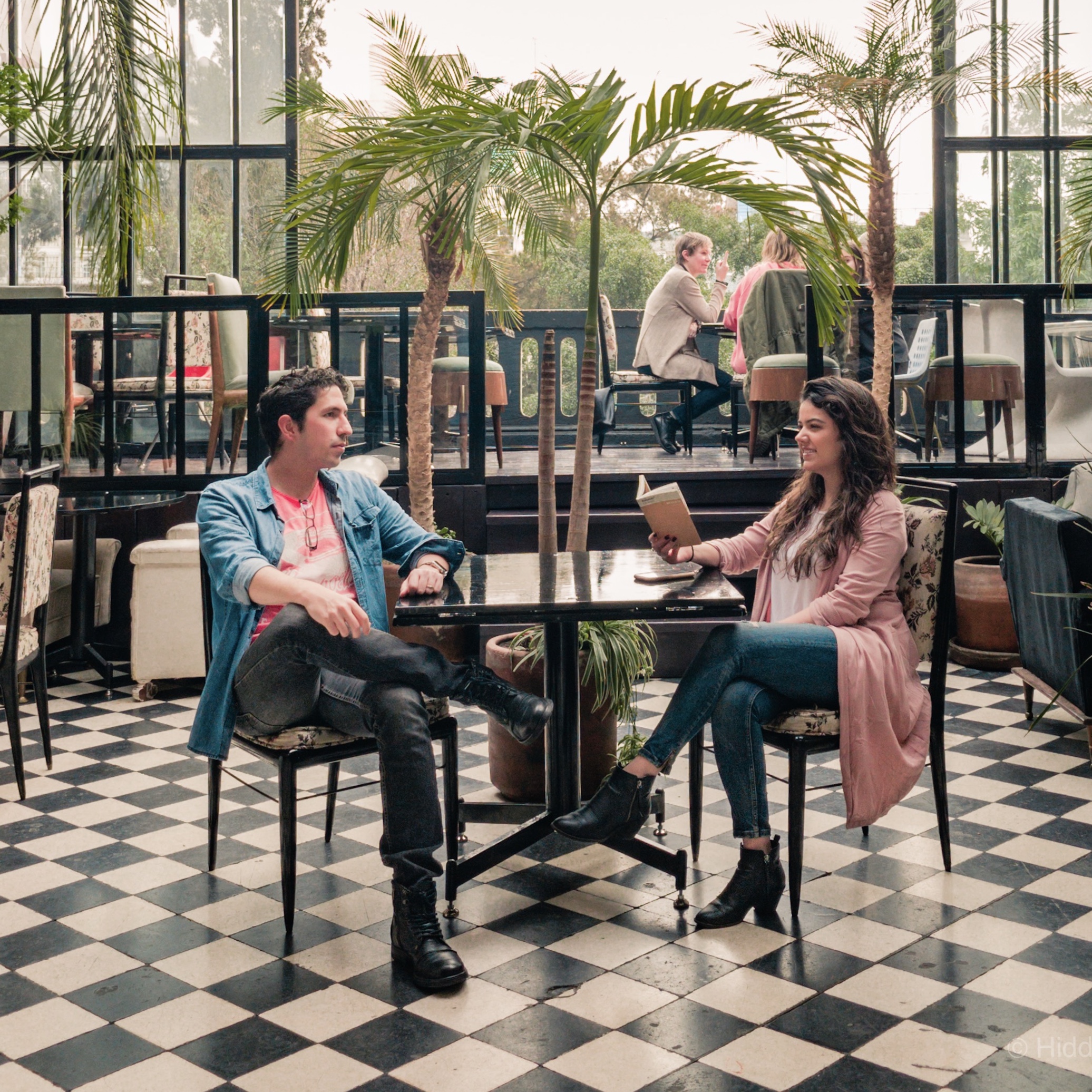
Our thoughts on racism in Mexico and some anti-racist traveling tips to be more conscious travelers.
Racism in Mexico
Recent events have sparked a much needed conversation about racism. In Mexico’s southern coasts, we have a large community of Afromexicans who have JUST been given their own checkbox to represent them in this year’s National Population Survey (before there was only an indigenous category).
However, the real question is: will they tick off that box? A reporter from the Washington Post recently published an article about ticking the ‘Afro ethnicity’ box for the first time, and mentions how her family could be heard in the background saying: “No, we are not Black.” Because for many decades, that’s what they’ve been told to do, to deny their roots.
Afromexicans are not the only ones, though. Many Mexicans deny their indigenous or even Mexican background on a daily basis. This is why it’s not uncommon to hear the following statements:
-“I’m Spanish, I even have my passport.” Even though their great-grandparents, grandparents, and parents have all been born in Mexico.
-“All my family is light-skinned, unfortunately I’m the only colored one.”
-“Her newborn is beautiful, light-skinned.”
And it’s not about taking pride in one’s heritage, it’s about not denying certain parts of it. The parts that we’ve been made to think are unpopular, less worthy, or undeserving.
The uncomfortable truth
The uncomfortable truth is that since the Spanish colonization, Mexico has been undeniably racist. We no longer have slaves, but we do have marginalized indigenous groups, ashamed of their color and background, or immigrants who cross Mexico’s southern border and experience horrendous xenophobia for not being Mexicans.
Just two years ago, Yalitza Aparicio, the lead actress of the movie Roma, posed in designer clothes for Vogue’s cover and received comments like “Aunque la mona se vista de seda, mona se queda.”. Meaning that no amount of designer clothes would cover her indigenous background. And it wasn’t only white-people saying that, the majority were people who have probably faced discrimination themselves.
Now, add external oppression. If you were a Mexican being singled out by your appearance and interrogated constantly at the border or living abroad dealing with awful racist comments on the daily, wouldn’t you also deny your roots? Going back to the survey, would you feel comfortable ticking off the box that singles you out?
More importantly, aren’t we all part African or indigenous, or both? aren’t these categories themselves segregating the population?

Anti-racist traveling
As you may have heard these past few days, not being racist isn’t enough. To make a positive change we have to be actively anti-racist. So, we came up with some tips to do so whilst traveling:
- Don’t bargain when buying handcrafts, especially if you see the merchant making them. This sends a message that their hard work (and very essence) isn’t worth the price. If you don’t want to spend that much, just don’t buy it. If they see you leave and they are willing to lower the price, they’ll do it.
- Do your research beforehand. Traveling to other countries is exciting, but it also requires the responsibility to educate yourself about the culture, traditions, and ways of life. You may not agree with some cultural aspects, but, unless you have a deep understanding of it, don’t try to impose your vision.
- Be open-minded. There’s a small town in Chiapas called San Juan Chamula, in which one spiritual/religious ritual includes drinking Coke and burping to release their demons and cleanse their spirit. Some visitors laugh at this practice, but what they are not taking into account is the local’s feelings. Nobody wants to be laughed at or belittled. So, try to control your reactions and facial expressions.
- Be patient. No-one likes to be patronized. We can’t tell you how many times we’ve witnessed rude foreigners talking down to waiters, hotel staff, or tour operators. Miscommunication and mistakes can happen, but just remember to always be polite. You’ll get the same result, and you won’t come off as entitled. And if you witness bad behavior in others, please interfere.
- Push the locals to value their traditions and land. Seeing you wear a traditional blouse, hearing you talk about the beauty of Mexico, or watching you pick up the trash off the beach, might just inspire the same action in locals. It’s all about mimetic desire: valuing something because someone else values it.
- Learn the language. No need to become fluent in Spanish, just learn a few words. You won’t believe the smiles you can spark with a simple ‘Gracias’ (Thank you), because what it means is: I’m making an effort because I want to communicate with you and learn about your culture.
Our anti-racist traveling pledge, which you are more than welcome to take part in, is to learn a few courtesy phrases in different indigenous languages, so the next time we interact with these groups in their towns or markets, we can also tell them: you and your language are important, too.
We would love to hear your opinion. If you have more tips to add on anti-racist traveling, leave them in the comments below.
Other posts you may find interesting:





While I totally agree with the above, as part of the prior research one must do before going to another place and encounter a new culture, is the finding out about customs and traditions. For example, in some countries bargaining for the handicrafts is not only accepted but people could feel insulted if you do not. Think grand bazaars in some middle east countries. I don’t generally like to bargain, unless I am ttold that it is expected of me to do that in a particular place. I think it is demeaning and an indication that one does not appreciate the work and passion that was put in making whatever thing is that one intends to buy. It never even crossed my mind to try to bargain with somebody just because of the color of their skin or any particular feature or ethnicity. If people are willing to show me their craft and tell me stories about it or just simple things from their culture, I actually tend to pay more because I feel like they shared a bit of their soul to enrich mine. But… I am a white person married to a black person, aware of the diversity of the world we live in and of the respect we owe to each other, and speak a bunch of languages and not afraid of learning any new ones. Trying to address somebody in their language, no matter how little, opens a whole new door into their lives and culture.
Author
Loved reading this, and you are absolutely, right. It totally depends on the culture. In Mexico it is a common practice, but people do it just to get the lowest price, which is awful. Especially because this practice is one of the reasons new generations don’t want to become artisans. Hard work and low pay, who would want that…
Yes, unfortunately. I also think Mexico is suffering from being so close to the US.
Last year I went to Peru and I was blown away by the display of handicrafts, and how proud they were of their work. I can tell when someone is just trying to sell me stuff or is really, genuinely, proud to show off their skills. So many of them were genuinely proud and so willing to share how they work, and what the elements in their art means! I realized how much work is involved for some things and how little reward there is. When I travel I always look for local arts centers and galleries to find souvenirs, not for the cheap fake crap from China. That way I know I take with me a part of the place I visited and I also contribute to feeding somebody or putting a roof over someone’s head.
Author
This is lovely. Hope we can make more people think like you and value the hard work behind Mexican handcrafts.
Think grand bazaars in some middle east countries. I don’t generally like to bargain, unless I am ttold that it is expected of me to do that in a particular place. I think it is demeaning and an indication that one does not appreciate the work and passion that was put in making whatever thing is that one intends to buy.
Author
Agree. And yes, some countries do encourage it. But, it would be interesting to know if they’d miss it if everyone suddenly stopped doing it.